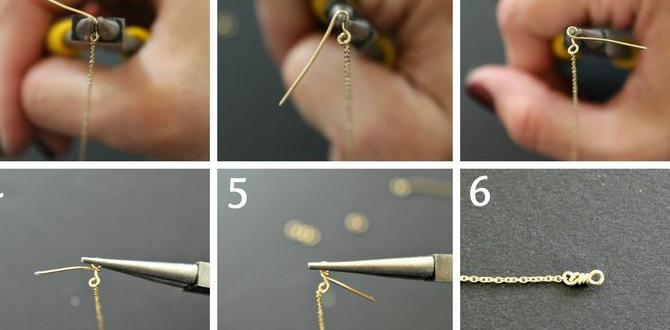To prevent diluted urine samples, avoid excessive fluid intake before testing. Follow any specific instructions provided, such as avoiding diuretics. A mid-stream sample can also help. If you’re concerned, discuss timing and hydration with your healthcare provider to ensure accurate results. Staying properly hydrated daily, without overdoing it before a test, is key.
Ever feel like you’re drinking too much water before a urine test, only to worry about it being too diluted? It’s a common concern! Nobody wants inaccurate results. Fortunately, preventing diluted urine samples is easier than you think. A few simple steps and a bit of planning can make all the difference.
In this guide, we’ll walk you through the process. We’ll cover everything from timing your fluid intake to understanding specific instructions. Get ready to learn how to provide a sample that gives you the most accurate results, every time!
Understanding Urine Dilution
Before diving into how to prevent diluted urine samples, let’s understand what it means and why it matters. Urine dilution refers to the concentration of substances in your urine compared to water. When you drink a lot of fluids, your kidneys produce more urine to get rid of the excess water. This can lower the concentration of certain substances, like creatinine, making the sample diluted.
A diluted urine sample can affect the accuracy of various tests. For example, drug screenings, pregnancy tests, and tests for medical conditions might give false negatives or inaccurate readings. This is why it’s important to provide a sample that accurately reflects what’s happening in your body.
Why Urine Concentration Matters
The concentration of your urine provides important clues about your health. Doctors use urine tests to check for a variety of things, including:
- Kidney function: Measures how well your kidneys are filtering waste.
- Diabetes: Detects glucose levels in your urine.
- Infections: Identifies the presence of bacteria or other pathogens.
- Drug use: Screens for illicit substances.
If a urine sample is too diluted, it can mask these indicators and lead to misdiagnosis or the need for repeat testing. This can cause unnecessary stress and delays in treatment.
Factors That Affect Urine Concentration
Several factors can influence the concentration of your urine. Being aware of these factors can help you take steps to prevent dilution.
- Fluid Intake: The most obvious factor is how much you drink. Drinking a lot of water, especially right before a test, will dilute your urine.
- Diuretics: These are substances that increase urine production. They include certain medications, caffeine, and alcohol.
- Medical Conditions: Some medical conditions, like diabetes insipidus, can cause excessive urination.
- Time of Day: Urine is typically more concentrated in the morning because you haven’t been drinking fluids overnight.
- Kidney Function: Impaired kidney function can affect how your kidneys regulate urine concentration.
Step-by-Step Guide to Preventing Diluted Urine Samples
Now, let’s get to the practical steps you can take to ensure your urine sample is concentrated enough for accurate testing. Follow these guidelines for the best results.
Step 1: Understand Test Requirements
Before anything else, make sure you understand the specific instructions for your urine test. Your doctor or the testing facility should provide clear guidelines. These instructions might include:
- Fasting requirements: Some tests require you to avoid food or drink for a certain period.
- Medication restrictions: Certain medications can interfere with test results.
- Timing of the sample: Some tests need to be done at a specific time of day.
If anything is unclear, don’t hesitate to ask for clarification. Knowing the requirements is the first step to a successful test.
Step 2: Monitor Your Fluid Intake
The key to preventing dilution is to manage your fluid intake, especially in the hours leading up to the test. Here’s how:
- Avoid Overhydration: Don’t drink excessive amounts of water or other fluids in the 2-3 hours before the test.
- Normal Hydration: Stay normally hydrated throughout the day, but don’t go overboard. Aim for the recommended daily intake, which is around 15.5 cups (3.7 liters) of fluids for men and 11.5 cups (2.7 liters) for women, according to the Mayo Clinic.
- Avoid Diuretics: Limit or avoid diuretics like coffee, tea, alcohol, and certain herbal supplements before the test.
Step 3: Time Your Sample Collection
The time of day you collect your sample can also affect its concentration. Here’s what to consider:
- First Morning Sample: If possible, provide your first morning urine sample. This is typically the most concentrated because you haven’t been drinking fluids overnight.
- Timing After Hydration: If you can’t provide a morning sample, wait at least 2-3 hours after your last significant fluid intake before collecting the sample.
Step 4: Use the Mid-Stream Collection Method
The mid-stream collection method helps ensure that your sample is clean and representative. Here’s how to do it:
- Wash Your Hands: Thoroughly wash your hands with soap and water.
- Clean the Genital Area: Use a sterile wipe to clean the genital area. Women should wipe from front to back.
- Start Urinating: Begin urinating into the toilet.
- Collect Mid-Stream: After a few seconds, move the collection cup into the stream and collect the sample.
- Finish Urinating: Finish urinating into the toilet.
This method helps to flush out any contaminants and ensures that you’re collecting a clean sample.
Step 5: Follow Specific Instructions for Drug Tests
If you’re taking a drug test, there may be additional instructions to follow. These might include:
- Witnessed Collection: In some cases, a healthcare professional may need to witness the collection to prevent tampering.
- Temperature Check: The sample may need to be within a certain temperature range to be valid.
- Creatinine Levels: The lab may check the creatinine levels in your urine to ensure it’s not too diluted.
Always follow the specific instructions provided by the testing facility to ensure your sample is accepted.
Dealing with a Previously Diluted Sample
What if you’ve already provided a diluted sample? Don’t panic! Here’s what you can do:
- Inform Your Doctor: Let your doctor know that you may have provided a diluted sample. They can advise you on the next steps.
- Reschedule the Test: You may need to reschedule the test and take extra precautions to prevent dilution next time.
- Follow Recommendations: Follow any specific recommendations from your doctor or the testing facility.
Tips for Maintaining Proper Hydration
While it’s important to avoid overhydration before a urine test, staying properly hydrated overall is crucial for your health. Here are some tips for maintaining a healthy hydration level:
- Drink Regularly: Drink fluids throughout the day, not just when you feel thirsty.
- Carry a Water Bottle: Keep a water bottle with you and refill it regularly.
- Eat Hydrating Foods: Include fruits and vegetables with high water content in your diet, such as watermelon, cucumbers, and spinach.
- Monitor Urine Color: Pay attention to the color of your urine. Pale yellow indicates good hydration, while dark yellow suggests dehydration.
Understanding Creatinine Levels
Creatinine is a waste product produced by your muscles. The kidneys filter creatinine from the blood, and it is then excreted in urine. Measuring creatinine levels in urine can help determine if a sample is diluted.
Normal creatinine levels in urine typically range from 20 to 370 mg/dL. If creatinine levels are significantly lower than this range, it may indicate that the sample is diluted.
How Creatinine Levels Are Used
Labs often use creatinine levels to correct for dilution in urine samples. This is especially common in drug testing. By measuring the creatinine concentration, they can adjust the results to account for the level of dilution. This helps ensure that the test results are accurate, even if the sample is not perfectly concentrated.
Common Myths About Urine Sample Collection
There are several misconceptions about urine sample collection. Let’s debunk some of the most common myths.
| Myth | Reality |
|---|---|
| Drinking a lot of water right before the test will help you produce a sample. | Drinking too much water can dilute the sample and lead to inaccurate results. |
| The first part of the urine stream is the best for testing. | The mid-stream collection method is recommended for the most accurate results. |
| You don’t need to wash your hands before collecting the sample. | Washing your hands is essential to prevent contamination of the sample. |
| Any container can be used to collect the sample. | A sterile collection cup should be used to avoid contamination. |
| You can add things to the sample to alter the results. | Tampering with a urine sample is illegal and can have serious consequences. |
When to Consult a Healthcare Professional
While these tips can help prevent diluted urine samples, there are situations where you should consult a healthcare professional:
- Underlying Medical Conditions: If you have a medical condition that affects your urine concentration, such as diabetes or kidney disease.
- Medications: If you’re taking medications that affect urine production.
- Repeated Diluted Samples: If you consistently provide diluted samples despite following these guidelines.
- Concerns About Test Results: If you have concerns about the accuracy of your test results.
A healthcare professional can provide personalized advice and address any underlying issues that may be contributing to urine dilution.
The Role of Diet
What you eat can also influence your urine concentration. Certain foods can have a diuretic effect, increasing urine production. Being mindful of your diet can help you maintain a healthy urine concentration.
Foods to Limit Before a Urine Test
- Caffeinated Beverages: Coffee, tea, and energy drinks can increase urine production.
- Alcohol: Alcohol is a diuretic and can lead to dehydration.
- Salty Foods: High-sodium foods can cause your body to retain water and then release it, affecting urine concentration.
- Sugary Drinks: Sodas and other sugary drinks can also have a diuretic effect.
Foods to Include
- Fruits and Vegetables: These are naturally hydrating and can help maintain a healthy fluid balance.
- Lean Proteins: These don’t have a significant impact on urine concentration.
- Whole Grains: These provide sustained energy without affecting urine concentration.
Staying Informed About Your Health
Understanding how to prevent diluted urine samples is just one aspect of staying informed about your health. Regular check-ups, open communication with your healthcare provider, and a healthy lifestyle are all important for maintaining your well-being. Being proactive about your health can help you catch potential issues early and take steps to address them.
FAQ: Preventing Diluted Urine Samples
1. What does it mean if my urine sample is diluted?
A diluted urine sample means your urine has a high water content, which can lower the concentration of substances being tested, potentially affecting accuracy.
2. How long before a urine test should I stop drinking fluids?
Avoid excessive fluid intake 2-3 hours before the test. Stay normally hydrated throughout the day, but don’t overdo it right before.
3. Can I drink coffee before a urine test?
It’s best to limit or avoid coffee and other caffeinated beverages before a urine test, as they can act as diuretics and dilute your urine.
4. What if I accidentally drank too much water before my test?
Inform your doctor or the testing facility. They may advise you to reschedule the test or wait a few hours before providing a sample.
5. Is my first morning urine sample always the best?
Yes, your first morning urine sample is typically the most concentrated and often preferred for testing.
6. What is the mid-stream collection method?
The mid-stream collection method involves starting to urinate into the toilet, then collecting the sample mid-stream into the cup, and finishing in the toilet. This reduces contamination.
7. Can certain medications affect my urine concentration?
Yes, certain medications, especially diuretics, can increase urine production and dilute your sample. Discuss any medications you’re taking with your doctor.
Conclusion
Preventing diluted urine samples might seem tricky, but with a few simple adjustments, you can ensure accurate test results every time. By understanding the factors that affect urine concentration and following our step-by-step guide, you’ll be well-prepared. Remember to stay informed, communicate with your healthcare provider, and prioritize your overall health and hydration. With these tips in mind, you can confidently provide a urine sample that gives you the most reliable results, helping you stay on top of your health and well-being.




